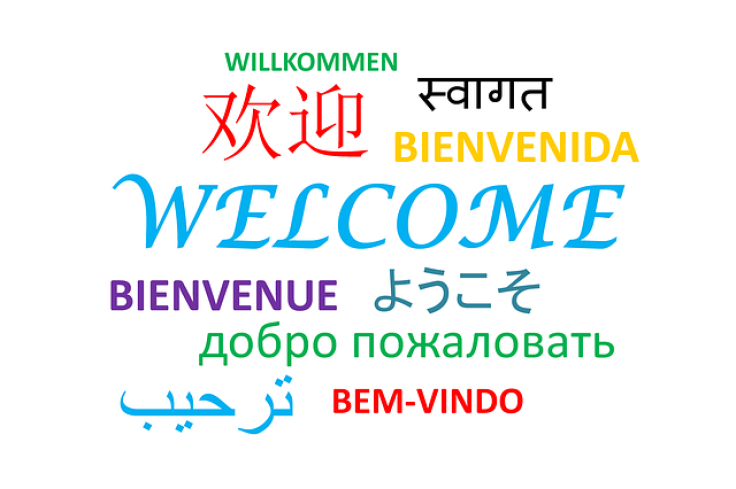Bilingual Benefits: How Learning Another Language Keeps Your Mind Sharp, No Matter Your Age

Speaking more than one language won’t just help you snag a date, it might also make you smarter. According to a recent study from Northwestern University, speaking more than one language constantly exercises the brain and makes it more prepared to take on other brain-challenging tasks. Recent figures estimate that only about 18 percent of Americans can fluently speak two or more languages, but if you’re in the overwhelming majority of those who don’t know a second tongue, don’t be discouraged. Picking up a second language isn’t nearly as difficult as you might think.
Exercise For The Brain
In a study, published online in the journal Brain and Language, lead researcher Dr. Viorica Marian and her team used functional magnetic resonance imaging, fMRI, to look at the co-activation and inhabitation in individuals who spoke more than one language. According to the press release, volunteers were asked to perform language comprehension tasks. This included hearing a word and then being asked to look at a corresponding photo.
For example, after hearing the word “cloud” they would be shown four pictures, including a picture of a cloud and a picture of a similar-sounding word, such as “clown.” The goal of the experiment was to see how well the participants were able to recognize the correct word and ignore the similar-sounding competing word.
Results showed that bilingual speakers were better than their one-language speaking counterparts at filtering out the competing words. This is believed to be because their brains are already used to controlling two languages and inhibiting the irrelevant words.
According to the researchers, this ability to tune out the wrong word is a strong indication of mental abilities. It helps bilingual individuals perform important tasks such as block outside noise in the classroom in order to concentrate.
"Inhibitory control is a hallmark of cognition," said Marian in the press release. "Whether we're driving or performing surgery, it's important to focus on what really matters and ignore what doesn't."
The bilingual brain benefits don’t end there: “Using another language provides the brain built-in exercise. You don't have to go out of your way to do a puzzle because the brain is already constantly juggling two languages," Marian added.
Even Minimal Knowledge Is Advantageous
Now while this finding may be exciting for the polylinguists of the world, what about the rest of us who barely passed high school French? Well, there’s good news.
“Even minimal knowledge of a second language is advantageous,” Marian told Medical Daily in an email, explaining that someone with a slight knowledge of a foreign language could still “definitely” share these benefits.
François Grosjean, author of Bilingual: Life and Reality, claimed that most of the world’s population is bilingual, The Huffington Post reported. According to his estimate, 56 percent of Europeans, 38 percent of Brits, 35 percent of Canadians, and 17 percent of Americans can speak more than one language at a generally proficient level. Although Grosjean’s findings are interesting, they are in no way “scientifically proven” and, in case you haven’t noticed, leave out a large percentage of Earth’s inhabitants (sorry Africa, South America, and Asia).
It’s not only the speaking of a second language that can exercise the brain; the actual learning process is also beneficial. While learning a second language as an adult is difficult, it is far from impossible. According to Dr. Robert DeKeyser, a professor of second language acquisition at the University of Maryland, we all have a different aptitude for language learning and you shouldn’t get discouraged if others learn at a faster rate than you.
“People vary in their aptitude like they do in learning math or in playing basketball,” DeKeyser told Forbes.
How To Learn A Foreign Langauge... At Any Age
Nearly anyone can learn a second language with a bit of motivation and diligence.
“The main thing is to do a bit every day and to not get discouraged if you miss a day. If audio works for you, do audio. If it’s classes, do classes. But find whatever it is and be consistent,” Richard Simcott, a polyglot who has professionally worked in over 14 languages at once for the British Foreign Service, told Forbes.
Practice is just as important as the initial learning process.
“One can listen to music and watch films in the other languages, read books, and visit websites (news outlets, etc) in that language, travel to countries where that language is spoken when possible, and cultivate friendships with individuals who speak that language,” Marian told Medical Daily.
Learning a foreign language should be fun, not tedious. Along with helping to strengthen your brain and protect it from dementia and Alzheimer’s disease, speaking a second language can help to make the world a smaller place. Also, it doesn’t take a lifetime for the brain to reap the benefits of bilingualism. “The benefits can be seen even after just one semester of studying," said Marian, adding that "It's never too late to learn another language."
This article originally appeared in Medical Daily.











